Journal for the Hispanic Theological Initiative

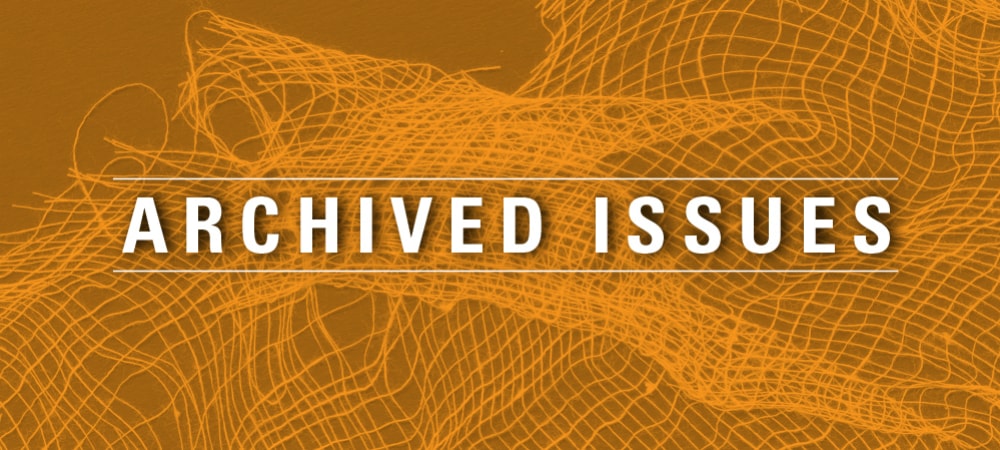
| Spring 2017
Spring 2016
HTI 25th Anniversary
2024
2023
2022
2021
2020
2019
2018
Free Back Issues
Spring 2016
Free Back Issues
Spring 2016
- Abstract:
Since 1998, Perspectivas has offered the Latino/a theological community a space for the innovative contributions of Latino/a scholars in theology and religion. It serves as a critical resource to stimulate further dialogue and research in theological and religious education. A printed peer-reviewed journal through 2009, with this Spring 2016 issue HTI is pleased to move Perspectivas to an online (and bilingual!) home. We expect that this online venue is what our readership has been asking and waiting for, and it will continue to offer a channel to showcase scholarship that is much needed in today’s American Academy and beyond.
Read MoreCollapse / Download IssueSince our last issue our community has said goodbye to exceptional scholars and dear friends – Alejandro García-Rivera (1951 – 2010), Ada Maria Isasi-Diaz (1943 – 2012), Rubem Alves (1933 – 2014), and Otto Maduro (1945 – 2013). As we move forward it is our hope that their lives and scholarship will not be forgotten which is why we are pleased that this issue includes several articles that engage some of their work and others that serve as tributes that remind us of their impact not only as scholars, but also as beloved friends. It is our hope that our community continue to remember them in forthcoming issues.
In October of 2014, Princeton Theological Seminary held its annual Herencia Lectures in celebration of Hispanic Heritage Month. On that occasion, Leopoldo Cervantes-Ortiz delivered his paper, “A Theology of Human Joy: The Liberating-Poetic-Ludic Theology of Rubem Alves,” tracing the history and impact of the late Brazilian poet, author, theologian, and one of the founders of liberation theology in its Protestant Latin American embodiment. Cervantes-Ortiz traces Alves’s trajectory from doctoral student in theology under M. Richard Shaull to his transition to theopoetics which catapulted him to become one of the greatest literary writers of Latin America. We are pleased to publish this important work (available in both Spanish and English) as part of this inaugural online issue.
As a response to Cervantes-Ortiz, Raimundo Barreto picks up Alves’s intellectual trajectory highlighting the theme of exile as a constant presence in much of Alves’s work. Barreto’s reading of Alves in, “Rubem Alves and the Kaki Tree: the trajectory of an exile thinker,” contributes a fresh perspective to the notable scholar’s prolific career as having deep roots in his navigation of space and being between the American academy and the Latin American people he deeply loved.
Engaging the work of Ada María Isasi-Díaz in, “Embodied Love: Explorations on the imago Dei in the Caribbean Latina Theology of Ada María Isasi-Díaz,” Elaine Padilla articulates a thoughtful witness to how Isasi-Diaz’s concept of ‘fully human’ raises constructive challenges to classical Christian theological explorations of the imago Dei. In memory of her former graduate professor, Padilla points readers to an underexplored aspect of Isasi-Diaz’s work (alongside other Caribbean Latina theologians) and maps a way forward for feminist work on bodies and embodied love as our ability to “image God as God images us.”[1]
In tribute to late philosopher and sociologist of religion, Otto Maduro, Nestor Medina and Matilde Moros both offer powerful testimonies of the prodigious and beloved scholar, who was professor of world Christianity and Latin American Christianity at Drew University’s Theological School and also served as the 2012 president of the American Academy of Religion (AAR). In, “Entre (Otros) Conocimientos and the Struggle for Liberation: Remembering the Legacy of Otto Maduro (1945-2013),” Medina focuses on Maduro’s vocational versatility and his unique ability to cross not only disciplinary boundaries in the academy but also denominational boundaries within the church. Moros highlights the themes of religion as the potential locus of both liberation and oppression to be found in Maduro’s work in, “Otto Maduro: Maestro de cómo ser amigo.” Calling Maduro’s work on religion and Marxism from a Latin American perspective, ‘timely,’ Moros demonstrates that among his many strengths as a philosopher and scholar, Maduro’s shining attribute was his ability to stay with the pulse of the people, lands, and movements he studied.
In the same spirit of lifting up voices still seldom heard in the academy, church, and society at-large, Xochitl Alvizo’s, “The Listening Guide: A Practical Tool for Listening Deeply to the Body of Christ,” offers an important practical tool for critical theological reflection on the church. Of interest to both academics and ministerial leaders alike, Alvizo outlines what her doctoral research on Emerging Church discovered and how ‘deep listening’ can serve as a pathway forward in the corrective journey toward a theology that includes all members of the body of Christ.
As you encounter the work of these scholars, and the scholars that they engage, we hope that you will become more aware of, and employ, the rich resources available in Latino and Latin American scholarship in your own work in the academy or the church. As, locally, our nation continues to change demographically and, globally, the church continues to grow in the Southern Continents it is these voices that are vital, and can no longer remain merely ancillary, to a complete theological witness for the church and the world.
Grace Vargas
Associate Editor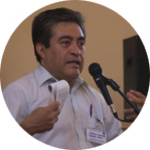 Leopoldo Cervantes-OrtizAbstract:
Leopoldo Cervantes-OrtizAbstract:Rubem Alves was one of the Protestant Latin American founders of Liberation Theology. He exerted an intense teaching thanks to his creativity and ability to transform dense theoretical aspects into impeccable expressive pieces. Later, when he opted for what now is known as Theopoetics, …
Read MoreCollapse / Download Issuehe deployed a theological and literary production that transformed completely his writing and projected him to ambits that he never imagined. This article intends to describe those changes that made Alves one of the best writers that have emerged in the Presbyterian circles in Latin America.
Leopoldo Cervantes-OrtizResumen:Rubem Alves fue uno de los fundadores de la teología de la liberación desde el campo protestante latinoamericano. Ejerció un intenso magisterio debido a su creatividad y a su capacidad para transformar aspectos teóricos densos en impecables piezas expresivas. Más tarde, al optar por lo que ahora se conoce …
Leer MasLeer Menos / Descargar este ejemplarcomo teopoética, desplegó una producción literaria y teológica que transformó por completo su escritura y la proyectó hacia ámbitos que él mismo nunca imaginó. Aquí se intenta dar fe de esos cambios que lo convirtieron en uno de los mejores escritores que han surgido del ámbito presbiteriano en el continente.
Download Raimundo César Barreto Jr.Abstract:
Raimundo César Barreto Jr.Abstract:This article presents a perspective on the changes that marked the development of Rubem Alves’s thought throughout his life. In the process of identifying the factors that contributed to those changes in Alves’s intellectual work, it argues that the situation of exile was a key motif in his work and one…
Read MoreCollapse / Download Issueof the reasons he was never fully understood and appreciated in the U.S. Contrary to perspectives that stress radical ruptures in his thought, it sustains that Rubem Alves underwent an ongoing distancing from the restrictions imposed by the academy, an irreversible return home in his intellectual life.
[Article Available Only in English]
Raimundo César Barreto Jr.Resumen:Este artículo presenta una perspectiva acerca de los cambios que marcaron el desarrollo del pensamiento de Rubem Alves a lo largo de su vida. En el proceso de identificación de los factores que contribuyeron a esos cambios en el trabajo intelectual de Alves, este artículo argumenta que…
Leer MasLeer Menos / Descargar este ejemplarla situación de exilio fue un tema clave en su trabajo y una de las razones por las cuales él nunca fue completamente entendido y apreciado en los Estados Unidos. Contrario a las perspectivas que enfatizan rupturas radicales en su pensamiento, aquí se sostiene que Rubem Alves sufrió un distanciamiento constante de las restricciones impuestas por la academia y un retorno irreversible a casa en su vida intelectual.
[Artículo disponible sólamente en inglés]
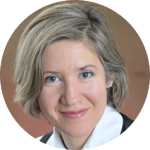 Elaine PadillaAbstract:
Elaine PadillaAbstract:This article primarily engages the concept of being fully human found in the work of Ada María Isasi-Díaz in order to offer a response to classical constructs of the imago Dei. Even as the Hebrew and Christian Scriptures robustly affirm manifestations of divine corporeality, much of classical Christian theology…
Read MoreCollapse / Download Issuerejects or neglects enfleshed views of the imago Dei. By accentuating the interplays between the invisible reality and the modes of relationality that resemble the Jesus event underscored in the anthropological theology of Isasi-Díaz, this article constructs a view of humans as icons of a God whose excessive love is embodied.
[Article Available in English Only]
Elaine PadillaResumen:Este artículo se dedica al concepto de ser plenamente humano, que se encuentra en la obra de Ada María Isasi-Díaz, con el fin de ofrecer una respuesta a las construcciones clásicas de la imago Dei. Aún cuando las escrituras hebreas y cristianas afirman enérgicamente manifestaciones de la corporalidad divina,…
Leer MasLeer Menos / Descargar este ejemplarmucho de la teología cristiana clásica rechaza o descuida las visiones encarnadas de la imago Dei. Al acentuar las interacciones entre la realidad invisible y los modos de relacionalidad que evocan al evento de Jesús puesto de relieve en la teología antropológica de Isasi-Díaz, este artículo construye una visión del ser humano como íconos de un Dios cuyo excesivo amor se encarna.
[Artículo disponible sólamente en inglés]
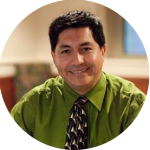 Néstor MedinaAbstract:
Néstor MedinaAbstract:This article celebrates the life and numerous contributions of Otto Maduro to the study of religion. It highlights some of the important moments in his personal and academic life, as well as his life commitments. Alluding to some of his written works, it becomes evident that Otto was a versatile…
Read MoreCollapse / Download Issueacademic, activist at heart and dedicated teacher and mentor committed to the liberation of oppressed peoples. This article also celebrates his approach at crossing disciplinary boundaries as well as his ecumenical engagement of different faith traditions and Christian denominations.
[Article Available Only in English]
Néstor MedinaResumen:Este artículo celebra la vida y las numerosas contribuciones de Otto Maduro al estudio de la religión. Aquí se subrayan algunos de los momentos importantes en su vida personal y académica, así como sus compromisos vitales. Aludiendo a algunos de sus trabajos escritos, llega a ser evidente que Otto…
Leer MasLeer Menos / Descargar este ejemplarfue en el fondo un activista académico versátil, un maestro dedicado y un mentor comprometido con la liberación de las gentes oprimidas. Este artículo celebra su acercamiento de cruzar fronteras disciplinarias así como su compromiso ecuménico entre diferentes tradiciones de fe y de denominaciones cristianas.
[Artículo disponible sólamente en inglés]
 Matilde MorosAbstract:
Matilde MorosAbstract:In addition to his unforgettable friendship, which became support for his research, Otto Maduro left much for us to think about with regard to religion. Starting with his first book and until his last writings, he was attentive to the historical context. To speak of Marxism and religion in that historical moment meant that Otto was in tune with the times.
Read MoreCollapse / Download IssueReligion continued to be the theme and the place from which Otto studied, for a long time, the relation between social theories especially with regard to social conflict. His intellectual question centered on how religion could be both the cause of oppression as well as the cause of liberation in social conflicts.
[Article Available Only in Spanish]
Matilde MorosResumen:Además de la amistad inolvidable, que se convirtió en sostén de su investigación, Otto Maduro nos dejó mucho para pensar sobre la religión. Desde su primer libro hasta sus últimos escritos, siempre estuvo atento al contexto histórico. Hablar de marxismo y religión en ese momento histórico significó que la investigación académica de Otto estaba con la época.
Leer MasLeer Menos / Descargar este ejemplarLa religión siguió siendo tema y lugar de estudio para Otto por mucho tiempo, en relación a teorías sociales y sobretodo en relación al conflicto social, su inquietud intelectual se centró en cómo podría ser la religión tanto causa de opresión como causa de liberación en los conflictos sociales.
[Artículo disponible sólamente en español]
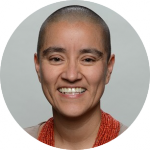 Xochitl AlvizoAbstract:
Xochitl AlvizoAbstract:The Listening Guide is a voice-centered method of narrative analysis developed collaboratively by Carol Gilligan et al. designed to keep the researcher open to discovery. This essay argues for the use of the Listening Guide as a “deep listening” method for critical theological reflection on the church. It is a…
Read MoreCollapse / Download Issuepractical tool that affirms the continuing incarnation of Christ in all participants of the church and is a corrective to the pervasive pattern within theology of allowing a handful of voices (too often, white male voices) to speak for the many.
[Article Available Only in English]
Xochitl AlvizoResumen:La Guía para escuchar es un método de análisis narrativo centrado en la voz, desarrollado de manera colaborativa por Carol Gilligan y otros, diseñado para mantener al investigador o investigadora abierto/a al descubrimiento. En este ensayo se argumenta a favor del uso de la Guía para escuchar como un…
Leer MasLeer Menos / Descargar este ejemplarmétodo de “escucha profunda” para la reflexión teológica crítica sobre la iglesia. Se trata de una herramienta práctica que afirma la encarnación continua de Cristo en todos y todas los y las participantes de la iglesia y es un correctivo para el patrón dominante dentro de la teología de permitir que un puñado de voces (demasiado a menudo, voces de hombres blancos) hablen a nombre de muchos.
[Artículo disponible sólamente en inglés]

